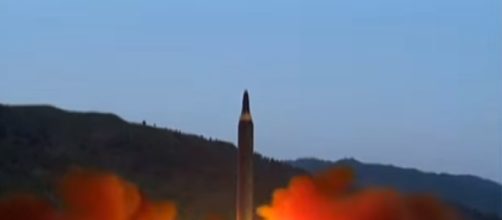Until the July 4 successful launch by North Korea of an intercontinental ballistic missile, the world underestimated Pyongyang’s capability. Western nations laughed at the failed missile launches of the communist nation.
It looks like, for now, North Korean leader Kim Jong-un had the last laugh at the world. Although the U.S. has a Missile Defense System expected to protect the country from an ICBM, defense officials and military experts said there is a slim chance it could protect the US from a short-notice ICBM attack.
Missile defense system fails 3 out of 5 tests
Politico reported that American military officials have acknowledged that the country’s missile defense system designed to shield the U.S. from an ICBM attack failed three of five tests. The system, based in California and Alaska, is made up of a diverse network of radars, sensors and interceptor missiles.
Jeffrey Lewis, the director of the East Asia nonproliferation program at the James Martin Center for Nonproliferation Studies, said that currently, if Pyongyang fired everything it has at the U.S., and the system fired at all of the North Korean ICBM, the U.S. would probably hit more of the missiles.
While the Pentagon insisted on Wednesday that the Boeing-designed Midcourse Defense system can hit an ICBM flying through the atmosphere, in June, the outgoing Navy admiral in charge of all the Defense Department’s missile defense program admitted he has reliability concerns with the system.
More success with short-range and mid-range systems
Phil Coyle, the chief weapons tester of Pentagon, told Congress the $40-billion Midcourse Defense system had more success with short-range and medium-range systems. He said recent tests showed a 75 percent failure rate or 40 percent success rate which is not a passing grade.
Of the 36 ICBM interceptors, 32 are in Fort Greely, Alaska, and four at Vandenberg Air Force Base in California. By the end of 2017, the number of ICBM interceptors is expected to rise to 44.
Meanwhile, The Washington Post reported that according to Victor Cha, a North Korean expert and the Korea chair at the Center for Strategic and International Studies, a bipartisan institution, the July 4 ICBM launch of Pyongyang is dangerous on multiple levels.
He pointed out that the rate at which North Korea accelerated its missile technology is beyond anybody’s estimation.
On the positive side, Cha said there is good unity between the Trump administration and Congress on the North Korean issue. The different sanction legislation against Pyongyang has been quite effective. Cha added the problem lies more with China which refuses to rein in or cut off North Korea despite Pyongyang’s misbehavior.


